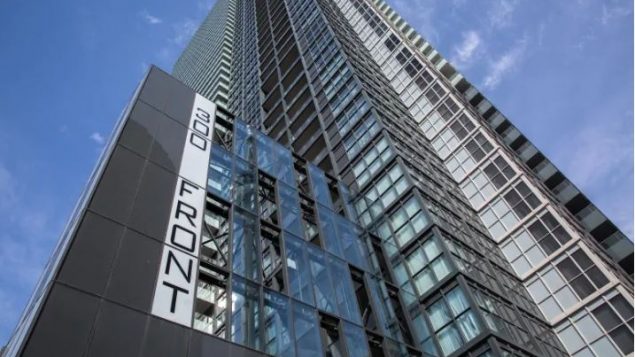Airbnb, the short-term rental platform, has been a boom for some people, and a major bust for others.
Recently in Toronto, Canada’s largest city with a population of over 2.8 million, a condo owner won a case against a person who appeared to be part of a group renting units, only to turn around and rent them out for short-term stays.
The CBC’s Lauren Pelley reported that the owner of the condo came across photos of her place on a site and began investigating which led to proceedings, but with grey areas of the law, the case took some time to settle.
Fairbnb.ca is a coalition that has been lobbying for changes to the laws to protect homeowners and condo owners in locations that are zoned residential.
The organization got started in Toronto in 2016 when the abuses were becoming widespread and well organized. In a city with a shortage or long-term rental accommodation, these laws matter.
“We are a coalition of the regulated accommodation sector, meaning hotels, we are also a coalition of social housing advocates, affordable housing advocates, tenants associations, but we are also a coalition of a great number of citizens who actually live in neighbourhoods and condos that suffer from problems associated with the increase in short-term rentals in their own neighbourhoods and buildings.” Thorben Wieditz told me in an interview today.
“Ghost Hotels”
He is a researcher with Fairbnb.ca, He says the group is in favour of home-sharing, but wants transparent regulations against the current practices that have led to what’s known as “ghost hotels”, as one example.
Listen
- Fairbnb spokesperson Thorben Wieditz, says “a lot of the housing market has been sort-of consumed by Airbnb and other types of short-term rental companies” (Yanjun Li/CBC News)
“Ghost hotels are essentially converted residential units that fly under the radar and have been turned into hotel units and hotel suites”, he says.
“Imagine a condo that contains three, four hundred residential units, but you know, over the years two hundred of them have been turned into short-term rental units. You have essentially created, or you’re confronting a hotel, a residential building that is de facto used for short-term rental purposes and the accommodation of tourists”
And the hosts are not paying commercial taxes, and the other residents of the buildings have to put up with wild behaviour and damage to their common property.
“They literally just survived the long weekend”
This appears to be the case at 300 Front Street West, a condo tower, near Toronto’s iconic CN Tower.
Thorben Wieditz says he was speaking to a resident this morning of what has become a notorious address on Front Street West. The condo owner said “that they literally just survived the long weekend”.
“They had the city come in to shut down the pool, I believe they have a roof-top pool that was well beyond capacity on the weekend because short-term rental hosts’ guests actually use the pool and they wreck the facilities, and I was also told that for the police, you know, 300 Front is known as Toronto’s biggest brothel essentially”, Wieditz says.
Fairbnb.ca has worked with owners and neighbours and they’re making progress in Toronto.
The Bleeker Street experience in the city’s Cabbage Town, is an example of what can happen to a neighbourhood.
This is where a row of Victorian two-story houses were bought up by a consortium of owners and turned into short-term rental accommodations.
“Long-term residents are being squeezed out and room is made for tourists who are bussed in, in coach busses and who are like catered to on the weekends and who have huge parties all to the detriment of existing residents and neighbours who have to deal with the situation that they thought they would have never to deal with because they thought they were going to live in a residential neighbourhood and not in an entertainment district.” Wieditz says.
The Bleeker Street situation was eventually dealt with and the addresses deleted from home-sharing sites, but other residents have to remain vigilant.
“We’re dealing with an antiquated zoning by-law regime that needs to be adapted to the new conditions and new realities.”
Weditz says Toronto has “done a tremendous job”. In December 2017 the majority of city councillors voted in “one of the best rules in North American in our opinion” according to Weidtz.
The new rules and regulations are currently being appealed at the Ontario Muncipal Board. There is a hearing on August 30, and 31, 2018.
Meanwhile, in San Francisco, where Airbnb got its start, new rules are firmly in place.
Now it has “one of the best regulatory frameworks in North America” Weidtz says.
It all began when the Golden Gate City successfully sued Airbnb
In complying with the new rules the platform saw a drop of almost 50 per cent of its listings, when it was forced to remove illegal listings and those from people who were not principle residents.
We’ll follow up to see what develops in Toronto in September.
(With files from CBC and the Toronto Star)







For reasons beyond our control, and for an undetermined period of time, our comment section is now closed. However, our social networks remain open to your contributions.